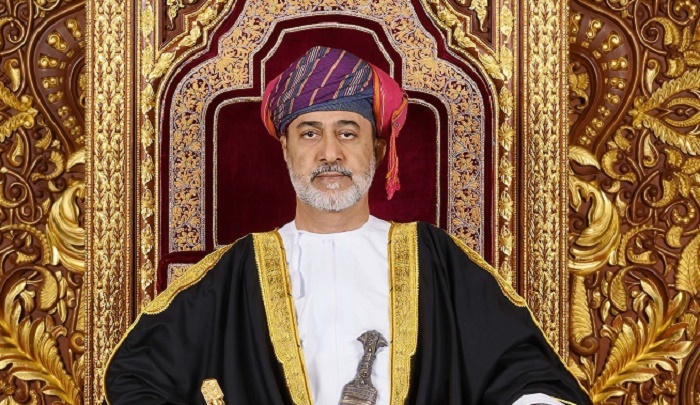
Muscat: Within the context of the Royal attention to reinforcing social solidarity, His Majesty Sultan Haitham bin Tarik gave his Royal directives to allocate OMR1 million to the Ministry of Health through the Waqf Health Foundation "Athar" to facilitate treatment for Zakat-eligible individuals in private healthcare institutions.
These directives aim to support those eligible for Zakat, strengthen the spirit of communal participation—a deeply rooted value in Omani society—and emphasize the importance of solidarity, generosity, and enhancing quality of life. The initiative also seeks to bridge healthcare gaps and expedite access to medical services across all segments of society.
Dr. Hilal Ali Al Sabti, Minister of Health, expressed profound gratitude to His Majesty Sultan Haitham bin Tarik for the unwavering support and care accorded to the healthcare sector in the Sultanate of Oman. He emphasized that these wise directives reflect His Majesty’s insightful vision and steadfast dedication to achieving sustainable development across all fields, particularly in health.
He noted that the Royal directives will enable Zakat-eligible individuals to receive guaranteed treatment in private healthcare facilities, opening doors to medical care and offering them hope and reassurance for recovery. He stressed the commitment to ensuring that this aid reaches its beneficiaries with fairness and transparency, restoring health, renewing hope, and fostering family well-being. He described the initiative as a humanitarian message that embodies the true essence of Zakat—a support system for people, an extended hand of mercy, and a bridge between generosity and healing.
On his turn, Dr. Mohammed Said Al Ma’amari, Minister of Endowments and Religious Affairs, expressed appreciation for the Royal directives, stating that the "Treatment for Zakat-Eligible Individuals" initiative—providing healthcare to Zakat-eligible groups through the private sector in coordination between the Ministry of Endowments and Religious Affairs and the Ministry of Health—represents a noble gesture embodying His Majesty’s continuous care and generosity toward the citizens of Oman. This initiative elevates social solidarity and prioritizes citizen health as a key focus of development and community building.
He highlighted that safeguarding human dignity is among the greatest objectives of Islam, and the duty of Zakat is intrinsically linked to this noble purpose. Zakat, he said, has always been and will remain a bridge of solidarity, a source of care, and an embodiment of compassion and mercy among people.
The minister called on society, including institutions and individuals, to support these blessed efforts and contribute to their sustainability, ensuring that the "Zakat-Eligible Initiative" remains a renewed source of giving in the community and a pillar of social solidarity.
Meanwhile, Dr. Sami Sulaiman Al Farsi, Director General of the National Center for Women and Children’s Health, stated that the Royal directives reflect a forward-looking vision that impacts family stability by supporting Zakat-eligible individuals in accessing appropriate treatment. This initiative, he affirmed, enhances societal welfare, improves quality of life, provides necessary healthcare, and builds bridges of trust between community members and institutions committed to service delivery.
On her turn, Dr. Abeer Abdullah Al Ma’amari, Director of the Treatment for Zakat-Eligible Individuals Project, emphasized that the Royal directives reinforce the core principles of "Oman Vision 2040", safeguarding human dignity and expanding service distribution while addressing the needs of Zakat-eligible individuals. This aligns with the profound humanitarian values in Omani culture and religious teachings, where Zakat serves as a vital tool for achieving societal balance.
She added that allocating RO 1 million to this humanitarian initiative represents an innovative model for utilizing Zakat resources to build an integrated healthcare system through a strategic partnership between the public and private sectors, under the supervision of the Ministry of Health and the Ministry of Environments and Religious Affairs. The initiative focuses on providing specialized healthcare in private institutions for Zakat-eligible cases requiring surgeries or radiological services, thereby reducing waiting lists.
As for regulations and registration procedures, she clarified that applicants must be registered in Zakat-eligible records and possess a medical report from a government healthcare institution recommending the required medical procedure. Registration will begin on 10 September through Zakat committees in the governorates and will continue for two weeks to ensure the highest standards of transparency and accuracy in selecting beneficiaries and directing resources to achieve the desired positive impact.
Hilal Hamad Al Sarimi, Executive Director of the Waqf Health Foundation "Athar," stated that the Royal directives reflect the wise leadership’s dedication to fulfilling the highest requirements of social development and enhancing partnerships between the public and private sectors and Zakat institutions, including "Athar." This, he said, contributes to achieving developmental sustainability, ensuring the continuity of healthcare services, and guaranteeing their reach to all segments, particularly those eligible for humanitarian support. It also stimulates growth in the private healthcare sector by directing certain cases to it, ensuring complementarity between public and private health institutions.
For his part, Dr. Mohammed Salim Al Kharusi, Director of the Zakat Department at the Ministry of Endowments and Religious Affairs, highlighted that the Royal directives embody His Majesty’s care for Omani citizens, especially Zakat-eligible groups. He described the initiative as a pioneering step in cementing the principles of social solidarity and promoting the religious and humanitarian values underpinning the Zakat system in Oman.
He added that it will cover treatment costs for many needy patients who meet Zakat eligibility criteria, alleviating their financial burdens and health struggles, as well as those of their families.